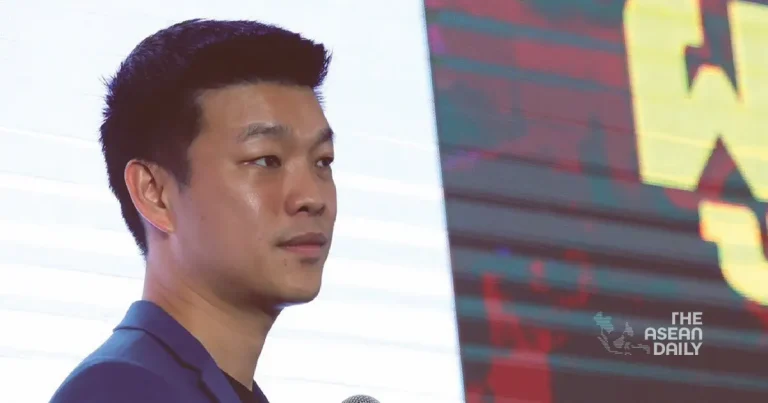19-8-2024 (BANGKOK) Natthaphong Ruengpanyawut has emerged as the unexpected leader of the newly-formed People’s Party (PP), vowing to carry forward the progressive agenda of its predecessors. The 37-year-old computer engineering graduate finds himself at the helm of a party born out of necessity, following the dissolution of the Move Forward Party (MFP) by Thailand’s Constitutional Court.
Speaking exclusively to the Bangkok Post, Natthaphong outlined his vision for the PP, emphasising the party’s ambition to secure a majority in the next general election. “Our main challenge is to win over half of the House seats, which would allow us to form a single-party government and continue the struggle initiated by the MFP,” he stated.
Natthaphong’s rapid ascent in Thai politics is a testament to the tumultuous nature of the country’s political landscape. Having begun his political career with the Future Forward Party (FFP) in 2019, he witnessed the dissolution of both the FFP and its successor, the MFP, before assuming leadership of the PP.
Despite his swift rise to prominence, Natthaphong asserts his legitimacy as the party’s leader, emphasising that he has been entrusted with continuing the mission of the PP’s predecessors. He expressed readiness to be the party’s prime ministerial candidate in future elections, should he be deemed suitable for the role.
Under Natthaphong’s leadership, the PP plans to shift its focus towards local politics, aiming to engage rural voters in the same manner that the FFP and MFP mobilised young, urban supporters. “Local elections are as crucial as national polls,” he explained. “Having party representatives in local bodies is key to expanding our stronghold, especially in the lead-up to the next national elections.”
The new leader highlighted the importance of breaking the entrenched patronage system in Thai politics, pointing to the upcoming provincial administration organisation (PAO) election in Ratchaburi as a test case for the party’s grassroots strategy.
On the contentious issue of revising Section 112 of the Criminal Code, also known as the lese majeste law, Natthaphong maintained the party’s stance that the law requires revision. However, he stressed that the method and details of such a revision need further discussion.
Despite the loss of key advisers due to political bans, Natthaphong expressed confidence in the party’s bench strength, citing a pool of talented young members ready to step into leadership roles. “Being elected as MPs is just a means to an end… a tool to drive and implement policies,” he asserted.
Looking ahead, the PP under Natthaphong’s leadership plans to focus on two key issues: constitutional amendments and a review of the powers held by public independent organisations, particularly the Constitutional Court’s authority to dissolve political parties.
As the opposition leader, Natthaphong promised intensified scrutiny of the Pheu Thai-led government while urging support for bills proposed by his party. However, he tempered expectations regarding significant changes in the political landscape following the recent change in prime minister.




